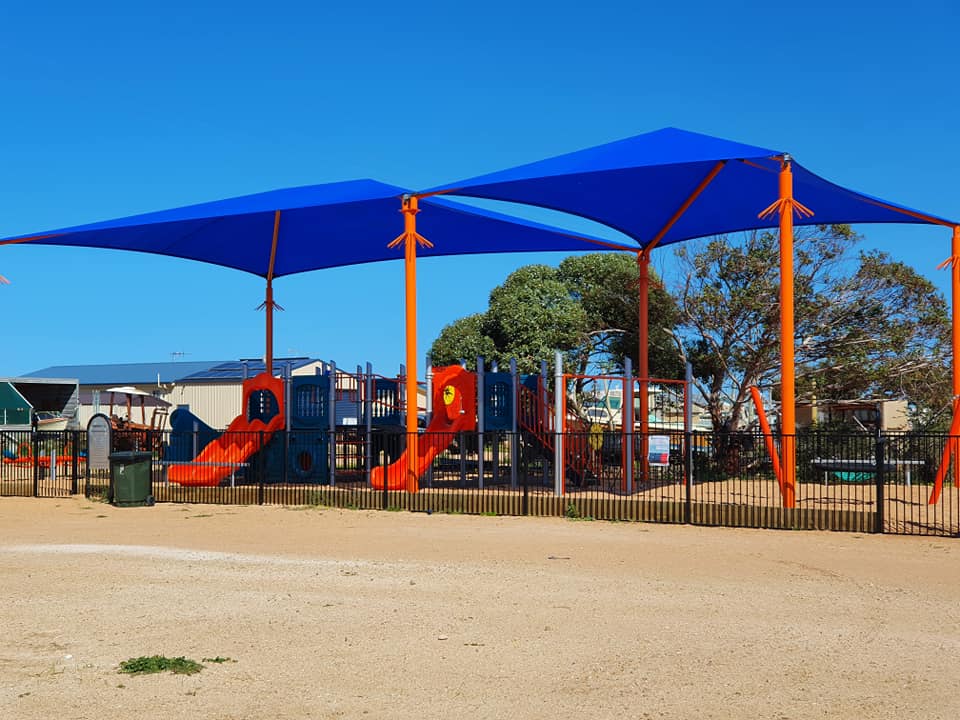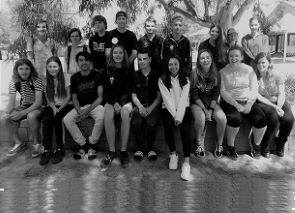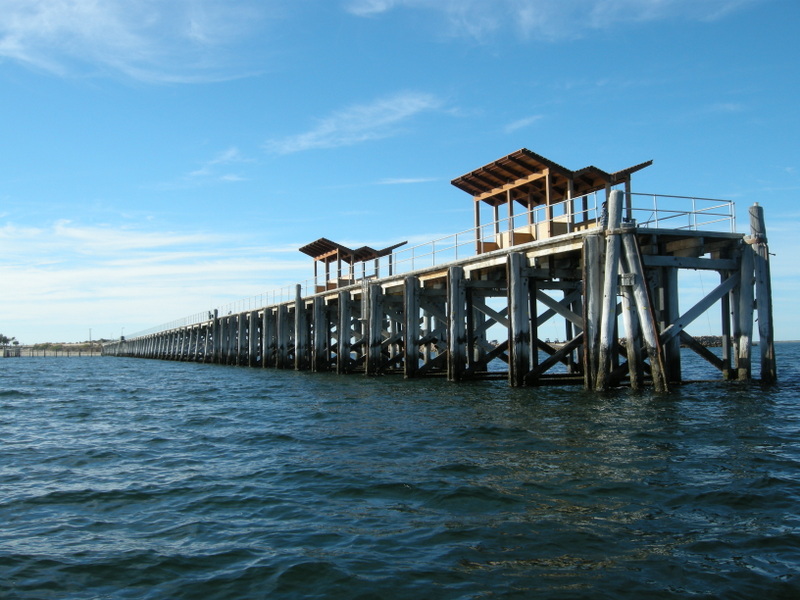Foundation for Rural & Regional Renewal (FRRR)
Picture this: the year is 1919 and you’re standing on the white sandy beach of Lucky Bay on the Eyre Peninsula coast in South Australia, looking up at the first beach shack to be built on the beach. The sun is warm, the water is perfect, and Lucky Bay is the idyllic holiday spot for the surrounding communities of Cowell, Kimba and Cleve.
Now in the 21st century, there are 125 beach shacks, and families from all around still come to visit the Bay!
The Lucky Bay Shack Owners Association (LBSOA) was established in 1950, and its role is to improve the environment and lifestyle of the Lucky Bay settlement for all residents and visitors to enjoy. This includes making sure the beach and local facilities are ship shape and ready to go for incoming holiday makers who are able to rent the beach shacks, as well as local fishermen and caravanners who use the facilities.
With an active role in the community, LBSOA wanted to do something that would bring some joy and a smile to the faces of the visitors to their little town. After prolonged drought, many locals were finding that holidaying with the family was simply a luxury not afforded, especially with livestock to attend to. But Lucky Bay is only 15 km north of Cowell, which makes it a perfect location for farming families to escape to, while still being able to tend to their farms.
Safe play = laughing children and happy parents
LBSOA sought funding from FRRR through the Tackling Tough Times Together (TTTT) program to support their ‘Laughter at Lucky Bay’ project, which would see a three staged plan to make the holiday destination more enticing by developing a child safe playground and surrounding facilities for parents and adults to enjoy.
Funded by the Australian Government, LBSOA received a $51,597 TTTT grant towards stage one of the plan: the purchase of new playground equipment, shade structures, soft fall sand, and fencing.
LBSOA’s President Sue Chase said they were overwhelmed by the community response, once they saw the works underway.
“What we were most astounded by is people’s enthusiasm to participate in working bees, and I think this stemmed from them seeing the playground come to life. Many people in the community provided their time to get the playground up and running. We are also proud of the funds we have raised. Our first ambition was to raise enough funds to contribute our share to the ‘Laughter at Lucky Bay’ playground project. However, we were amazed at the success of our fundraising, which, together with the other grants we received, allowed us to construct a shelter and install a BBQ shed and storage area near the playground,” she said.
The official opening of the playground in January 2021 was attended by hundreds of people who enjoyed the food stalls, jumping pillow, face painting and crab racing activities on offer.
These events not only raised vital funds to support the upkeep of the facilities, but also reinforced a real sense of community participation, lots of fun and helped people get to know one another better.
When asked what they were most proud of, LBSOA said the sheer number of children and even teenagers taking full advantage of the new playground made them so pleased. Extra facilities like a table and chairs and the BBQ have also encouraged parents and adults to spend time together and socialise, giving them a break from the ongoing pressures and stressors that drought can bring.

Content warning: this article deals with sensitive themes including self harm that might be disturbing for some audiences.
For students facing adversity in communities across SA’s Eyre Peninsula, a long-running resilience program helps them to create a future where they not only cope, but thrive.

Youth Opportunities runs a 60-hour, 10-week wellbeing and resilience program that provides young people, especially those that are disengaged and disadvantaged, with the tools and knowledge to overcome obstacles associated with life’s challenges – from bullying and anxiety to family dysfunction and drug and alcohol abuse.
In SA’s eastern and western Eyre Peninsula, drought is impacting on local families, increasing financial strain and social isolation. Port Lincoln High School, Tumby Bay High School and Whyalla High School report more than 30% of families are receiving financial assistance with school fees and materials. Statistics show farming communities across the state experience mental health problems at twice the rate of the general population, and for youth in the area, opportunities are low and suicide rates are higher than average.
The powerful program has found a 52.1% reduction in the number of teenagers at high risk of developing a mental health disorder as a direct result of training with Youth Opportunities.
Grants Officer, Mrs Sacha Burkett talks of a ‘ripple effect’ from the program. “This comes from young people making significantly better life choices, strengthening their personal relationships and becoming strong leaders amongst their communities.
“Following the delivery of our first program in Cummins, one local council member told Youth Opportunities she had “clearly witnessed much more community spirit and a behaviour change in young people in town”.
Youth Opportunities is structured to heavily subsidise the cost of delivery so the burden isn’t placed on budget restrained schools and low-income families, but remains accessible to those who need it most. The program has been running at schools successfully since 2008, but local drought and financial stress means there has been a decreased capacity to fundraise locally for the program to continue.
Against this backdrop, FRRR awarded a $20,000 grant, through the Tackling Tough Times Together (TTTT) program, thanks to the support of the Australian Government. The grant part-funded local trainer’s salaries, training materials, administration, travel, graduation costs and sustained graduate engagement.
Across the three schools, 54 Year 10 students (aged 15 and 16) attended the program. Trainers combined practical experience and coaching, delivering content within a supportive group environment, extending the groups’ skills ‘in areas not typically part of school, but important for life’. Upon completion there was a Graduation Ceremony celebrating the journey, personal changes, achievements and outcomes of the students.
Feedback from the students illustrates the immediate benefits on their outlooks:
- “I am feeling a lot happier and I am pushing myself harder to achieve my goals.”
- “I have developed the confidence I need within myself.”
- “Youth Opps has really changed the way I think about everything, by not looking back and moving forward in life.”
- “By opening up to challenges and new habits, I have found a new side of myself I never thought I would find.”
- “Youth Opps has helped me to see my worth.”
All graduates are now being supported to reach their educational and personal goals through an additional two years support from Youth Opportunities trainers, focusing on reinforcing program content and helping graduates continue to achieve and succeed post-program.
Mel Degner, Principal Cummins Area School, wrote that the program cuts through and proves relevant for students of all backgrounds, giving them significant long-term skills and strategies.
“Through the Youth Opportunities Personal Leadership Program, many of our students reconnect with their families by learning how to communicate more positively, others change their goal planning to include further education or a newly discovered career path, and the majority discover important things about themselves and begin to value their self-worth.“
Similarly, Nicky Prosser, Principal Tumby Bay Area School, says the program has contributed to a positive shift in school culture, helping students manage their responses to negative experiences.
“Youth Opportunities delivers valuable outcomes for or students – positively impacting classrooms, friendship groups, families and the wider community.”
FRRR is delighted to have been able to support a program making such a positive difference.
The newly refurbished jetty at Smoky Bay, a community of only 198 residents, was opened last month as part of the jetty’s centennial celebrations. The restoration included newly decked areas with fishing booths, railing and new lighting, as well as shelters, seating and picnic facilities.

The refurbishment has been a long-time aim of the Friends of the Smoky Bay Jetty subcommittee of the Smoky Bay Progress Association, in collaboration with the Eyre Peninsula Community Foundation. The jetty is the centre-piece of the town, but it had fallen into disrepair due to lack of funds and lack of capacity to raise them.
The project was estimated to cost $360,000, with half being raised by the community and the balance via matched government grants. FRRR supported the committee by hosting a Not-for-Profit Fundraising Account (previously known as a Donation Account), which allowed the community to raise these funds locally. The money raised went towards the design and reconstruction of the dilapidated section of the jetty.
Congratulations to the community of Smoky Bay on such a mammoth task. Make sure you add this little town to any future visit you may be doing in South Australia.

